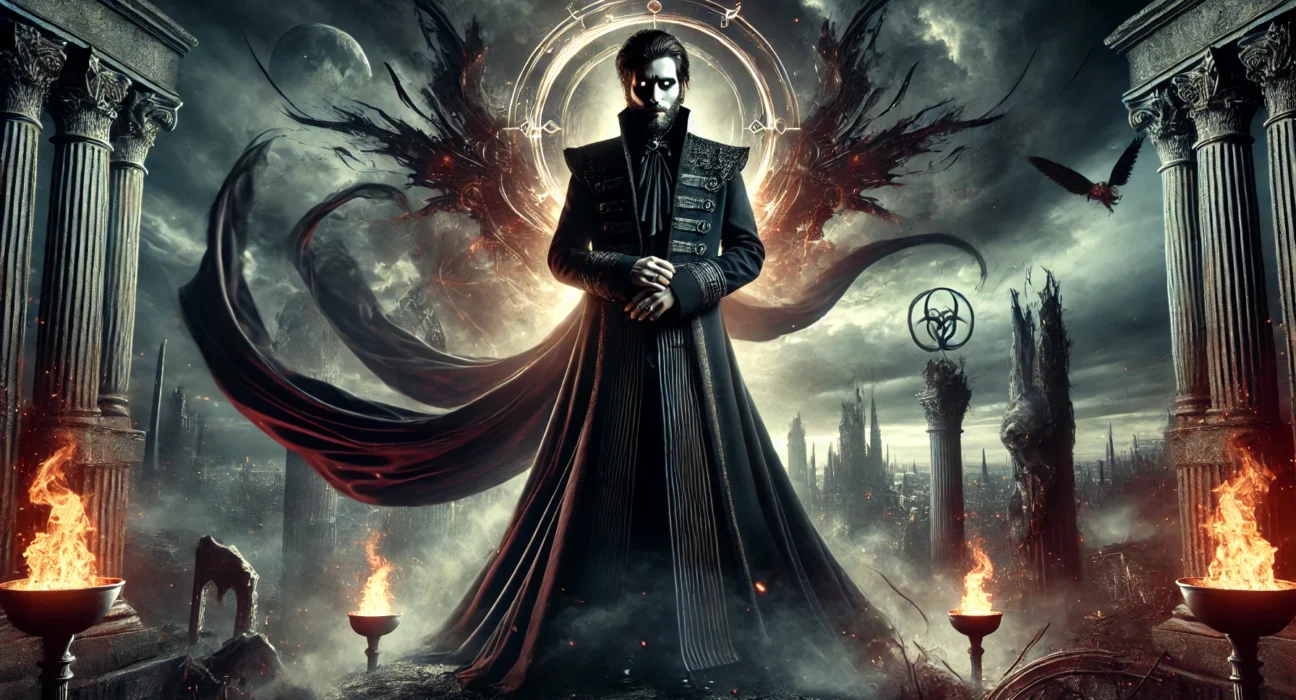“The Antichrist” by Friedrich Nietzsche, published in 1888 and translated by H.L. Mencken, is one of Nietzsche’s most provocative and controversial works. As a vehement critique of Christianity, Nietzsche’s work explores the nature of religion, morality, and the impact of Christian values on Western civilization. This treatise was intended as the first part of his larger, unfinished project, “The Will to Power,” and represents some of his most radical ideas in their final form. Written during a period of intense creative output and shortly before Nietzsche’s mental collapse, “The Antichrist” encapsulates his philosophical rebellion against Christian doctrines and the values they propagate.
Comprehensive Plot Summary
In the icy, desolate realms beyond the known world, the Hyperboreans dwell—Nietzsche’s metaphorical construct for those who transcend conventional morality and live in pursuit of higher truths. This desolate happiness, earned through navigating the labyrinth of existence, stands in stark contrast to the languid complacency of modern humanity, steeped in a superficial tolerance that Nietzsche scorns. Nietzsche begins by defining what he considers good and evil. Good is the enhancement of power, the will to power, and the feeling of power increasing. Evil, on the other hand, stems from weakness. Happiness is the experience of overcoming resistance, not mere contentment. Nietzsche dismisses virtues rooted in Christian morality as symptomatic of societal decay and advocates for the elimination of the weak, arguing that practical sympathy for them is the most harmful of vices—epitomized by Christianity.
In the vast, windswept landscape of human existence, Nietzsche roams like a storm, uncovering the stark contrasts between the powerful and the weak. He likens true happiness to a sense of increasing power and overcoming resistance, dismissing the mere contentment offered by conventional virtues. These virtues, he argues, spring from weakness and have been exalted by Christianity, which he sees as a force that wages war against the higher type of man. This higher type, the overman, embodies strength, creativity, and vitality—qualities that Christianity has maligned, instead promoting a herd mentality that venerates mediocrity and submissiveness.
The philosopher’s journey takes him through the intricate pathways of history and culture, where he observes the impact of Christian morality. He sees in Pascal’s intellectual downfall a tragic illustration of Christianity’s corrupting influence. Pascal, a brilliant mind, was led to believe that his intellect was tainted by original sin, when in fact, it was Christianity that stifled his potential. This, Nietzsche contends, is emblematic of a broader cultural and spiritual decay.
Nietzsche’s exploration delves deeper into the concept of pity, which he views as antithetical to life itself. Pity, in his eyes, is a depressant, a force that multiplies suffering by preserving those unfit for survival, thus undermining the evolutionary process. He links pity to nihilism, presenting it as a technique for denying life’s value. In contrast, the tonic passions that affirm life and enhance its energy are what truly drive humanity forward. This perspective sets the stage for Nietzsche’s broader critique of Christian values and their impact on society.
The landscape of Nietzsche’s thought is marked by stark oppositions. He targets theologians and idealists, accusing them of intellectual dishonesty and a deep-seated aversion to reality. The theological instinct, he argues, is the root of falsehoods, transforming truth into something damaging to life. This inversion of values is a strategic move by theologians to maintain their power, elevating weakness and submission while denouncing strength and independence.
As Nietzsche traverses these intellectual territories, he encounters the philosophical legacy of Kant. He rejects Kantian morality, particularly the categorical imperative, as dangerous abstractions divorced from life’s realities. True virtue, Nietzsche insists, must be grounded in personal necessity and self-defense, not in universal, impersonal principles. Kant’s philosophy, he argues, represents the decay of genuine intellectual vigor, a collapse into moral and intellectual rigidity.
The climax of Nietzsche’s journey is a profound critique of the Christian concept of God. This God, he argues, has become the embodiment of decay, promoting values that negate life. The transformation of God from a symbol of power and life-affirmation to one of meekness and denial mirrors the decline of civilizations that embrace such a deity. Nietzsche contrasts this with Buddhism, which, despite being a nihilistic religion, approaches suffering with a realistic, objective mindset and rejects the self-deception inherent in Christian moral concepts.
In his sweeping narrative, Nietzsche calls for a transvaluation of all values—a complete re-evaluation and redefinition of what is considered valuable and true. This radical shift would see the end of Christian morality and the rise of a new, life-affirming ethos that celebrates strength, power, and the nobility of the human spirit. His vision is one of a world where the strong are no longer shackled by the weak, where the powerful and creative are free to shape their destinies without the constraints of outdated moral systems.
As the storm of Nietzsche’s thought subsides, the desolate landscape he reveals is one of both destruction and potential. The ruins of Christian morality lie scattered, but amidst the debris, there is the promise of a new beginning. This new world, unburdened by the shackles of pity and false virtues, offers a space where humanity can rise to its true potential, where the will to power can flourish unimpeded.
In the end, Nietzsche’s journey through “The Antichrist” is a call to arms, a challenge to humanity to break free from the chains of conventional morality and embrace a life-affirming philosophy. It is a vision of a world where the strong thrive, the weak are not coddled, and true happiness is found in the pursuit of power and the overcoming of resistance. This is the world Nietzsche envisions, a world where humanity can finally realize its true potential and rise above the mediocrity that has long held it back.
Main Characters
- Friedrich Nietzsche – The philosopher himself, presenting his ideas with fervor and clarity, serving as the protagonist against the backdrop of Christian values he vehemently opposes.
- Christian God – Portrayed as the antithesis of life-affirming values, representing decay and the negation of life.
- Pascal – A tragic figure whose intellectual downfall is attributed to the corrupting influence of Christianity.
- The Theologians and Idealists – Representing the opposition, they embody the intellectual dishonesty and moral inversion Nietzsche seeks to dismantle.
Themes and Motifs
- Will to Power – Central to Nietzsche’s philosophy, this theme emphasizes the importance of strength, creativity, and the drive to overcome challenges.
- Critique of Christianity – A relentless examination of Christian values, portraying them as antithetical to life and human flourishing.
- Nihilism and Decay – Explores the notion that Christian morality leads to the decline of culture and vitality, promoting weakness and submission.
- Transvaluation of Values – Advocates for a radical re-evaluation of moral and philosophical values, seeking to replace Christian ethics with a life-affirming philosophy.
Writing Style and Tone
Nietzsche’s writing in “The Antichrist” is characterized by its passionate, provocative, and often polemical style. He employs aphorisms, rhetorical questions, and vivid metaphors to convey his arguments with intensity and clarity. The tone is confrontational and uncompromising, reflecting Nietzsche’s fervent opposition to the values he critiques. His language is both poetic and incisive, blending philosophical discourse with literary flair. This distinctive style serves to engage the reader while challenging deeply held beliefs, making “The Antichrist” a powerful and enduring work in philosophical literature.
If this summary has sparked your interest, we would appreciate you subscribing to our newsletter.
There’s a treasure trove of other fascinating book summaries waiting for you. Check out our collection of stories that inspire, thrill, and provoke thought, just like this one by clicking here.
If you want to request a book summary, click here.
When Saurabh is not working/watching movies/reading books/traveling, you can reach him via Twitter/X, or LinkedIn.
Restart reading!






